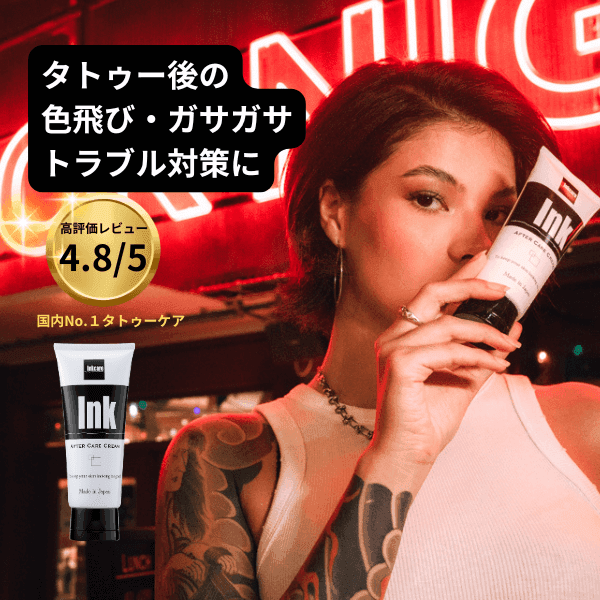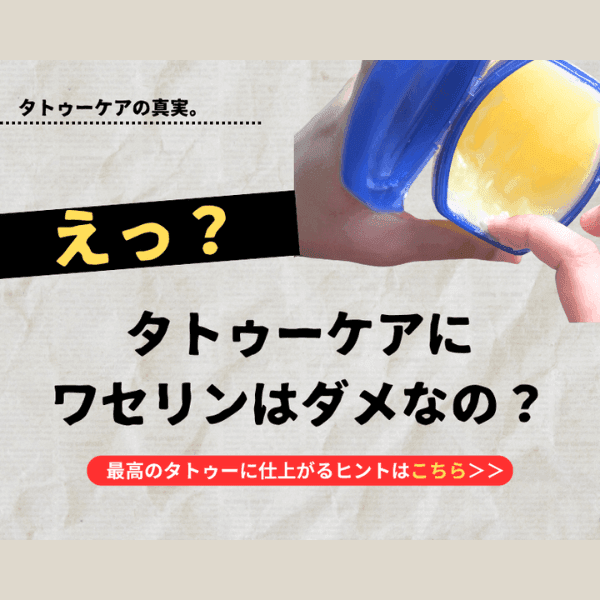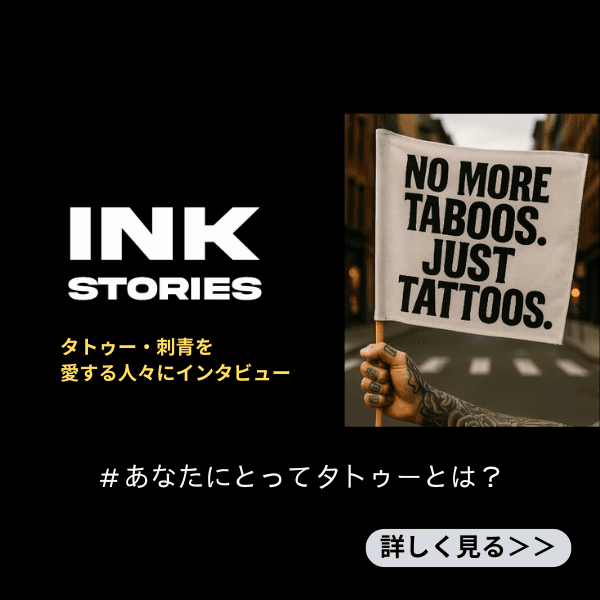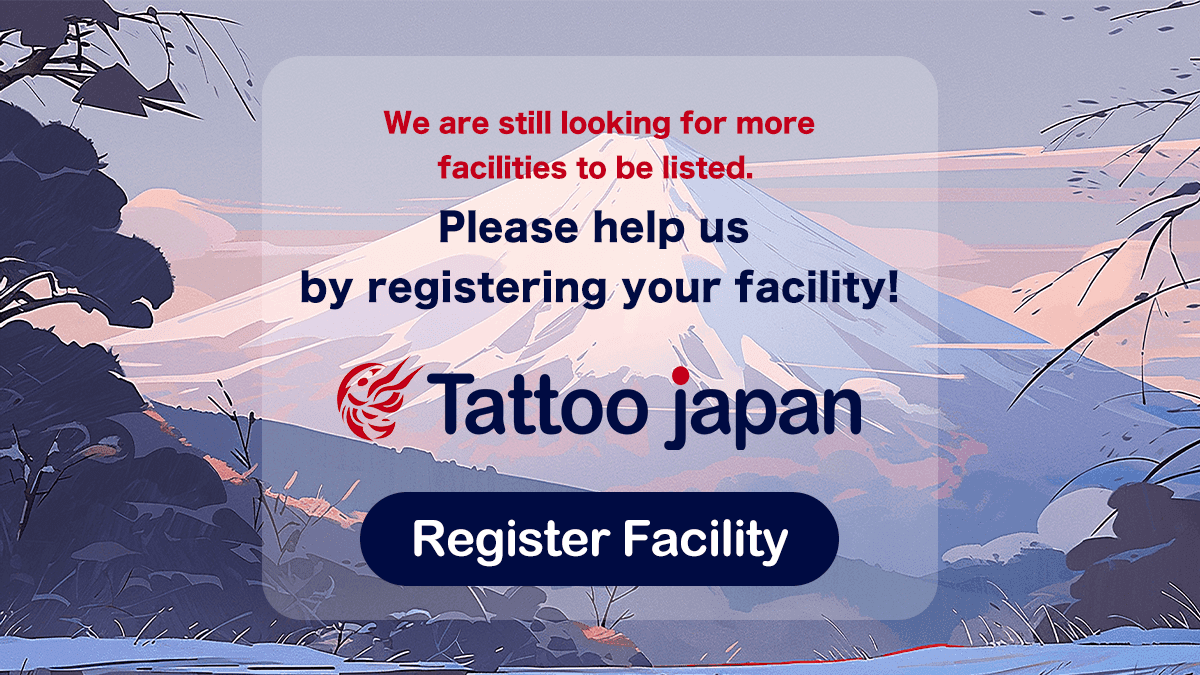
How painful is a tattoo? Includes a ranking of painful areas and examples of pain!
How painful are tattoos?
I'm getting my first tattoo but I'm scared and worried if I can endure it...
When you first want to get a tattoo, the first concern that comes to mind is "How painful is it?"
You often see various comparisons on the internet and social media, such as "It feels like your skin is being scraped roughly" or "It feels like being continuously cut with a box cutter," and the experiences of people who have actually gone through it vary greatly.
This article thoroughly explains tattoo pain rankings by body part, differences in pain during various procedure stages, tips for reducing pain, and frequently asked questions.
Whether you're considering getting a tattoo or hesitating due to pain concerns, please use this as a reference!
How Painful Are Tattoos?
In reality, tattoo pain is often described as a unique sensation that combines "sharp stimulation like being repeatedly traced with a needle on the skin" and "gradual pain like a scrape."
Also, the intensity of pain varies greatly depending on the body part, and in areas where the skin is thin and bones or nerves are close, you may experience intense pain described as "being shallowly cut with a dull box cutter" or "being scrubbed hard with steel wool."
On the other hand, areas with more muscle or fat like the back, thighs, and upper arms have relatively less pain, with many people saying "it was more bearable than I thought."
Additionally, the way you feel pain also changes depending on your physical condition on the day of the procedure and the tattoo artist's skill, so it's difficult to accurately express pain in general terms.
What Can Tattoo Pain Be Compared To?
The way pain is felt differs from person to person and is greatly influenced by the body part and individual pain tolerance.
Among these, tattoo pain is often described with the following comparisons:
- Feeling like being scraped with the tip of a mechanical pencil
- Feeling like being shallowly cut with a dull box cutter
- Feeling like being scratched with a ballpoint pen
- Pain like being scrubbed hard with steel wool
- Pain like being scratched with something sharp
Tattoo pain is commonly compared to the sensation of being repeatedly stabbed with needles on the skin.
This pain occurs when needles penetrate the skin at a depth of about 1-2mm at high speed, and it's closer to the image of "sharp cuts" or "intense prickling sensation" continuing rather than stab wounds.
【By Genre】Tattoo Pain
Here we'll introduce the pain of hand-poking and machine tattooing respectively.
Hand-Poking Pain
With hand-poking, many people feel that the pain is relatively mild because the practitioner carefully inserts needles one by one.
The pain sensation is characterized by a tapping-like pain that feels like being stabbed on the skin at a steady rhythm.
Therefore, hand-poking has large variations in pain, with painful and less painful moments alternating, and some say they feel fatigue easily when receiving long procedures.
On the other hand, some people feel that it puts less burden on the skin than machine tattooing, with less post-procedure stinging and faster healing.
Hand-poking tends to be greatly influenced by the tattoo artist's skill level, so considering that procedure time will be longer, ask a tattoo artist you trust.
Machine Tattooing Pain
Machine tattooing has the advantage of shorter procedure time compared to hand-poking.
However, machine tattooing pain differs from hand-poking, with many reporting prickling pain or burning sensations on the skin.
Also, machine tattooing penetrates the skin at high speed about 80-140 times per second, putting a large burden on the skin and making pain feel stronger.
Especially many people feel that the "outlining" process is very painful, and pain increases during wide-area procedures or long sessions, so beginners should start with one-point tattoos.
【By Procedure Stage】Tattoo Pain
Tattoo procedures roughly consist of three types: "outlining, shading, and filling."
Here we'll introduce how pain feels for each.
Outlining Pain
Outlining is an important process in tattooing where the design's contours are drawn.
Since a small number of needles concentrate on one spot and penetrate the skin at high speed, "outlining was the most painful part of tattoo pain" is a common complaint.
Therefore, it puts a large burden on the skin, and pain becomes especially strong in areas close to bones or where skin is thin.
Shading and Filling Pain
Shading and filling are processes performed to add depth and three-dimensionality to tattoo designs.
In shading and filling, multiple needles (about 5-40) are used to go back and forth over the skin many times to insert ink, so it's compared to "pain like being scrubbed hard with stones or steel wool."
While the pain itself is softer than outlining, the procedure area is wide and takes a long time, so pain tends to increase as time passes.
Tattoo Pain Ranking by Body Part


Right: For males, Left: For females
(Reference: https://www.healthline.com/health/body-modification/pain-tattoos-chart#pain-chart)
The above research from an overseas site shows areas where pain is easily felt by gender using different colors.
The top 5 ranking of body parts where pain is easily felt is as follows:
| Rank | Body Part | Features/Reasons |
|---|---|---|
| 1st | Armpit/Side | Skin is thin and nerves and lymph nodes are concentrated, making it very sensitive |
| 2nd | Ribs | Close to bones with thin skin, so needle stimulation is transmitted directly |
| 3rd | Top of feet/Toes | Many nerves and bones are close, so pain is strong |
| 4th | Back of hands/Fingers/Wrists | Nerves are concentrated and skin is thin, making it prone to pain |
| 5th | Head/Neck | Skin is thin and sensitive, plus many nerves make strong pain likely |
These areas are considered especially prone to pain because they have little fat and bones or nerves are close.
Beginners should try getting tattoos while avoiding areas that are prone to pain.
Methods to Reduce Tattoo Pain
Here we'll introduce methods to reduce tattoo pain.
For those who want to reduce pain during tattoo procedures even a little, it's important not to consume alcohol the day before or on the day of the procedure.
Alcohol has the effect of depleting water from the body, and poor skin condition may cause stronger pain and swelling.
Furthermore, while intoxication may dull the sensation of pain, there's also the risk of becoming more likely to feel unwell after the procedure.
Therefore, avoiding alcohol not only the day before getting a tattoo but also on the day itself, and approaching the procedure in perfect physical condition, is key to reducing pain and safely enjoying your tattoo.
Summary of Tattoo Pain
This article has introduced how tattoo pain feels by genre and procedure stage.
Tattoo pain varies greatly between individuals and also differs depending on the procedure area, design, and procedure time.
To reduce pain, it's important to make adequate preparations before the procedure and approach it in a relaxed state.
Beginners should try getting tattoos while avoiding areas that are prone to pain.










